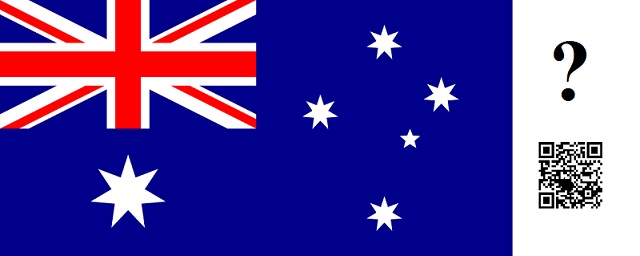Vodafone to launch new mobile commerce application in 2013
Vodafone Australia, one of the country’s leading mobile network operators, has teamed with Visa to launch the Vodafone SmartPass, which will be available to consumers next year. Vodafone has taken note of the growing interest Australian consumers are showing in mobile commerce and is taking steps to provide consumers with new service that align with the demands of customers. Visa is also keen to meet the rising demand for mobile commerce and has been working to develop a platform that consumers can use to make payments with their smart phones.
of the country’s leading mobile network operators, has teamed with Visa to launch the Vodafone SmartPass, which will be available to consumers next year. Vodafone has taken note of the growing interest Australian consumers are showing in mobile commerce and is taking steps to provide consumers with new service that align with the demands of customers. Visa is also keen to meet the rising demand for mobile commerce and has been working to develop a platform that consumers can use to make payments with their smart phones.
Application allows for mobile purchases
The Vodafone SmartPass is a mobile application developed for the Android platform. The application allows users to make purchases using the financial information associated with a prepaid account. Though the Vodafone SmartPass can access the information associated with this account, the application does not create the account itself. Consumers will need to attain an NFC-enabled SIM card from Vodafone in order for the application to work properly.
NFC SIM card adds extra layer of security
The NFC SIM card contains a blank account that can be filled with cash from consumers. This is meant to add an extra layer of security to the platform, addressing some of the concerns consumers have had recently regarding the overall safety of mobile commerce. The prepaid account is not capable of drawing money from an existing bank account. As such, consumers will need to manually refill their accounts if they make regular purchases, or they can set up a specific date when their account will be filled automatically, per approval.
Scarcity of NFC-devices may slow growth of mobile commerce
Minor purchases can be made with a simple wave of a smart phone, while larger purchases will require additional authorization. Vodafone and Visa expect that mobile commerce will continue to generate hype and become a more popular practice amongst consumers. NFC-enabled mobile devices are still rare, however, so the growth of mobile commerce may be slowed until these devices become more available to consumers around the world.
Australian consumers still widely unfamiliar with QR codes
QR codes continue to be a hot top ic in marketing and have even begun to generate some hype around their use in mobile commerce. Despite the fact that the codes have become widely used, however, many consumers are still unfamiliar with the barcodes. This is especially true in Australia, where Econsultancy, a market research publisher, and Toluna, a survey and market research firm, have found that the majority of consumers do not know what QR codes are.
ic in marketing and have even begun to generate some hype around their use in mobile commerce. Despite the fact that the codes have become widely used, however, many consumers are still unfamiliar with the barcodes. This is especially true in Australia, where Econsultancy, a market research publisher, and Toluna, a survey and market research firm, have found that the majority of consumers do not know what QR codes are.
Codes still obscure despite their age
QR codes are not new technology. The codes emerged in the early 1990’s in the auto industry of Japan, developed by Denso Wave, a subsidiary of Toyota. Denso Wave used the codes to keep track of inventory. The codes eventually found their way into the hands of advertisers, who were able to leverage their striking appearance and ability to distribute information quickly to engage consumers. Over a short period of time, QR codes became rampantly popular in Japan, and are still so today. Outside of Japan, however, the codes have had more trouble finding traction with consumers.
Survey shows many consumers are unfamiliar, but also that many are well aware of QR codes
According to the survey from Econsultancy, 62% of Australian consumers do not know what a QR code is, let alone what the barcodes are meant to do. The survey does show, however, that approximately 51% of consumers between the ages of 18 and 34 recognize the codes and know how to use them, with another 51% of these consumers having used a code within the last three months. The problem seems to be awareness, as many of the companies that use QR codes either for mobile commerce or marketing do not take the time to educate consumers on what the codes actually are.
Codes picking up momentum in mobile commerce
QR codes are becoming more popular in the realm of mobile commerce, especially in terms of so called “pop-up,” or virtual stores. These stores can be located anywhere and take up little room. Instead of physical products, these stores feature pictures of products they sell, with a QR code attached. When the codes are scanned, consumers can purchase the product associated with a QR code through a mobile website. UK retailer Tesco has done this in the past, as well as other retailers throughout the world.
 of the country’s leading mobile network operators, has teamed with Visa to launch the Vodafone SmartPass, which will be available to consumers next year. Vodafone has taken note of the growing interest Australian consumers are showing in mobile commerce and is taking steps to provide consumers with new service that align with the demands of customers. Visa is also keen to meet the rising demand for mobile commerce and has been working to develop a platform that consumers can use to make payments with their smart phones.
of the country’s leading mobile network operators, has teamed with Visa to launch the Vodafone SmartPass, which will be available to consumers next year. Vodafone has taken note of the growing interest Australian consumers are showing in mobile commerce and is taking steps to provide consumers with new service that align with the demands of customers. Visa is also keen to meet the rising demand for mobile commerce and has been working to develop a platform that consumers can use to make payments with their smart phones.
 ic in marketing and have even begun to generate some hype around their use in mobile commerce. Despite the fact that the codes have become widely used, however, many consumers are still unfamiliar with the barcodes. This is especially true in Australia, where Econsultancy, a market research publisher, and Toluna, a survey and market research firm, have found that the majority of consumers do not know what QR codes are.
ic in marketing and have even begun to generate some hype around their use in mobile commerce. Despite the fact that the codes have become widely used, however, many consumers are still unfamiliar with the barcodes. This is especially true in Australia, where Econsultancy, a market research publisher, and Toluna, a survey and market research firm, have found that the majority of consumers do not know what QR codes are.